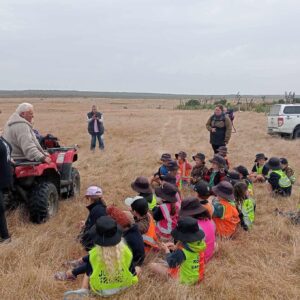



When my mother and I first arrived in New Zealand, she was 22 and I was four. We didn’t know anyone or anything. We had to learn how to use public transport, ATMs, how to buy groceries and clothes, pay bills – all while learning a whole new language. This was very overwhelming and isolating.
There’s a common misconception that the struggles of refugees end when they are granted asylum. This couldn’t be further from the truth. Settling in a new country is difficult enough – but add a background of forced migration, having to navigate foreign languages, cultures and systems while healing with trauma and you have a plethora of new challenges to contend with.
When we settled into our new home in Hamilton, there was one other Afghan family in the area who welcomed us with open arms. Having people from the same country, speaking the same language and believing in the same religion was invaluable – especially in those first few years when everything was so new and unfamiliar. Their presence was a great source of strength and comfort. We were able to keep in touch with our culture and keep our traditions alive because we had people to share them with. This, in turn, helped us foster a sense of “home” in our new environment.
Since I was quite young when we arrived in New Zealand, it was much easier for me to adjust than it was for my mother. This is not to say I didn’t experience any difficulties at all.
When I started school, I didn’t know any English. I’d learnt the alphabet in the six weeks I spent at the Mangere Refugee Resettlement Centre, but that was the extent of my education.
When I started school, I didn’t know any English. I’d learnt the alphabet in the six weeks I spent at the Mangere Refugee Resettlement Centre, but that was the extent of my education.
The staff at my primary school realised quite quickly that I needed more help than my peers and enrolled me into the ESOL program. This allowed them to monitor my learning on a more personal level, helping me catch up to the other children my age. The additional support was so effective that in my final two years at the school, I was amongst only a few other students that were selected to be a part of a higher learning group.
I was also a member of the after-school club for Muslim children, which was run by Matua Rauf, the only Muslim teacher at my school. He’d supervise us for an hour after the bell rang, allowing us to go on the computer to play, helping us with any homework we might have and offering snacks from the halal shop nearby.
A lot of the children who were members of this club had parents from refugee or immigrant backgrounds, many of whom hadn’t had the opportunity to receive an education – but if they had, it wasn’t in English. This meant their children couldn’t turn to them if they needed help with schoolwork. This was definitely the case for me.
Fortunately, the after-school club offered me the assistance my mother wasn’t able to, and I was able to thrive in school because of it.
Though these people are no longer present in my life, the impact that they had on me will remain with me forever. They will always be part of my community.
Nida Fiazi is a poet and writing studies student at the University of Waikato. She is a Muslim, Afghan and former refugee.
Related Posts

After a decade away from the whiteboard, educator and comic artist Indira Neville has returned to teaching – and she’s drawing about it. In this comic series, Indira shares a glimpse into her days at school, capturing what’s changed, what’s stayed the same and what she never saw coming.

From making lanterns and sharing kai to discos, art auctions and kapa haka, there are many different ways to celebrate Matariki and Puanga. Ako asked five kura from around Aotearoa how they mark this special time of year.

Working at a school on the Chatham Islands demands resilience, innovation and a deep sense of connection. Kirsten McDougall spoke with staff at Te One School to find out what it means to educate in one of the most remote communities in Aotearoa.

It’s often said that a nation’s budget reflects its values. If that’s true, then Budget 2025 tells us undeniably that children, especially our youngest tamariki, are not a priority.